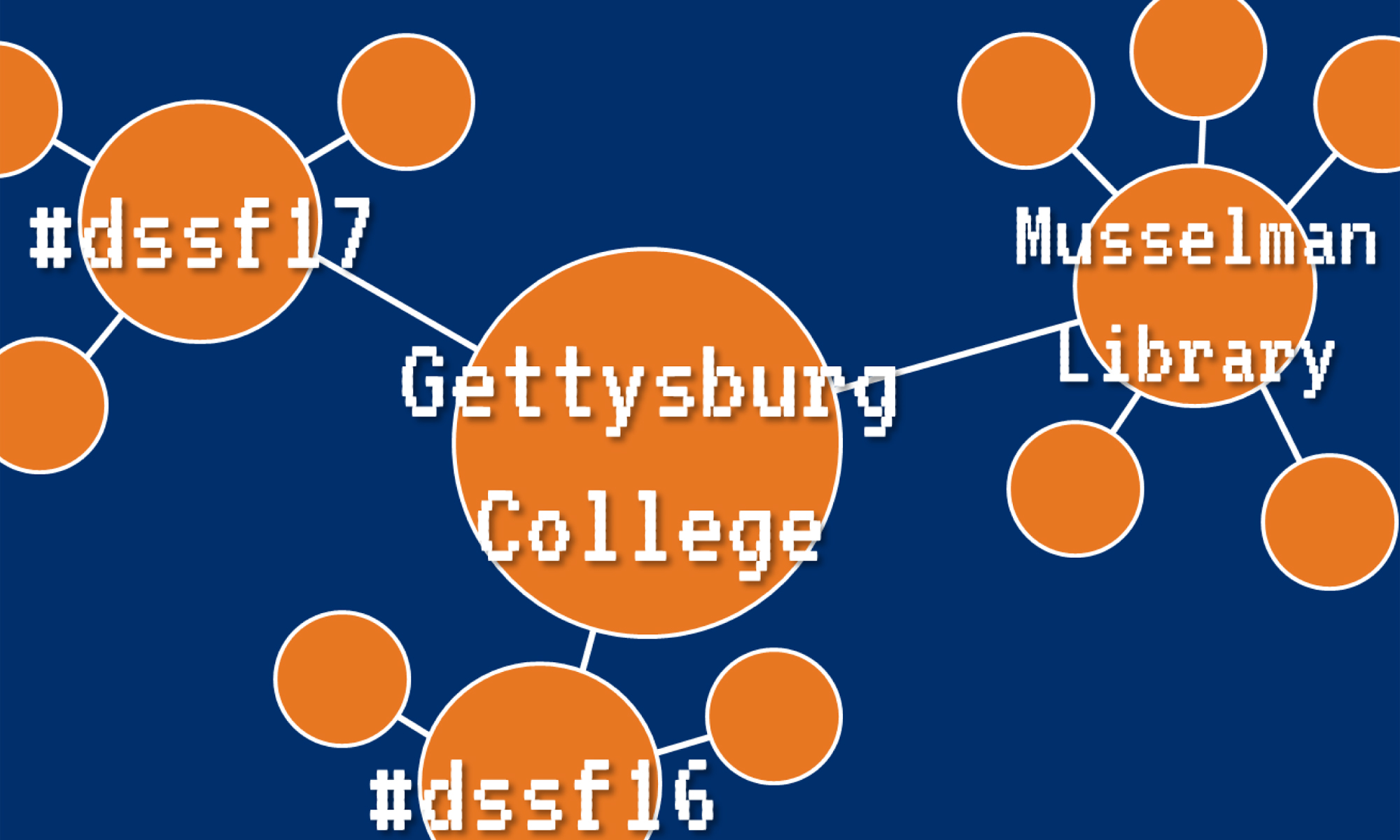Second day of Models for DH is done. Thankfully no music bingo was involved.
Today we spent time looking at materials from Hybrid Pedagogy and the MLA Commons’s Digital Pedagogy in the Humanities. I was drawn to the Indie, Open, Free article and, somewhat naturally, the Gaming keyword. I’ve been continuing to stress to the DSSFs that no tools are neutral and nothing is free; you need to continually critically engage tools to discover their perspective, to see what data they collect, to not accept what they are at face value. Even something awesome, like Reclaim Hosting‘s Domain of One’s Own service, has its challenges when it comes to trying to see how it fits into your larger DH program/initiative/confederation/etc. Even though I love Reclaim, it’s still something we don’t have complete control over. It’s a hosting service, so there’s limits to what can go in the stack, no root access, and we don’t own the servers. So I struggle with the idea of Reclaim being an infrastructure solution as I think more and more about it. Again, don’t get me wrong, it does some things beautifully, and I love one-click installs of Omeka and WordPress. But how do we make the entirety of our corner of Reclaim searchable and something we can archive? I can embrace the concept of ephemerality in DH, but that’s not a typical response. At any rate, to show process and develop longer-term projects, it may not be the best option. So I understand the logic behind the DHi’s need to develop a self-hosted, cohesive platform for their projects. What that looks like at Gettysburg, I don’t know, because we simply don’t have the capacity to do that right now. Maybe it doesn’t happen.
We also talked about failure and experimentation, and the idea of reframing failure as experimentation in order to take some of the negative stigma out of the reality that things don’t always work, and that’s ok. But it’s important to model that as well. Workshops shouldn’t go as planned. While we often script out demos and get everything working perfectly the first time, maybe it’s important to stumble along and reassure us all that we don’t always know what we are doing, and things sometimes just don’t cooperate with us. The idea of building failure into an assignment is interesting, so that students have to struggle with something and then realize they simply can’t complete the assignment as “expected.” I wonder about this, and go back and forth between thinking this is a cheat, or a way of manipulating students, or a positive learning experience. It all depends on how it is presented and reflected upon, I suppose.
Strategies for integrating digital pedagogy into the curriculum was also brought up; at Gettysburg, we have a pretty in with this, as our Special Collections staff have a great track record of connecting collections with classes, and much of what we have is digitized, so it’s not too big of a leap to consider how to integrate more digital materials into classes and take the next step and find ways to apply DH methods to the materials. Special Collections is also on the lookout for new materials that strengthen the curriculum, which can be digitized and shown to classes, so there’s certainly a mechanism to exploit there. As we try to be very curricular-focused in what we acquire and digitize, and try to work closely with students to support their original research, there’s a path to greater integration of DH into the broader curriculum. Our DH efforts have very much revolved around our Special Collections and telling stories with them, and we have become a very narrative-based shop in a lot of ways, as opposed to DH that is more data-driven. I think that’s good, since there’s a lot of interest in our collections and how they are used for classes, so playing to our strengths and existing relationships is a good strategy to continue moving forward with.
One thing that really stuck out to me was the idea that your DH program, at some point, has to define what DH is. And it should be a somewhat concrete definition, not nebulous. DHi uses the Digital Humanities Quarterly’s definition as a basis for theirs, with some modifications. Our digital scholarship definition as it relates to the DSSF program certainly could use some strengthening, and after this summer, I hope we are in the position to revisit it. Right now, we spend part of the first day trying to define what is DH, and thefirst and last student blog posts of the summer deal with the act of defining DH, especially as a shifting concept that may not have a set definition. Perhaps in the future, we need to have our definition ready and have them critically engage with that definition instead, and force us to revisit it on a regular basis to see if we need to change it. That seems to be a more sustainable idea, and one that may help give us focus.

We touched AGAIN on the “no tools are neutral” theme today – especially because Wikipedia claims to be written from a neutral point of view! https://en.wikipedia.org/wiki/Wikipedia:Five_pillars
Nothing created by humans is neutral. As humans, we can step on the balance to help correct imbalance.